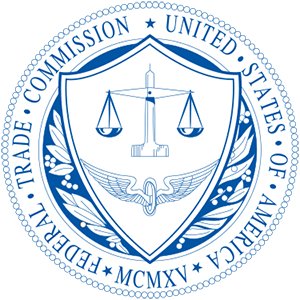
On April 2, the Federal Trade Commission (FTC) announced it had sent eight letters to jewelry marketers warning them that some of their online advertisements for jewelry made with lab-grown diamonds or diamond simulants may deceive consumers.
The FTC did not specify which marketers received the letter, but a sample can be seen here.
The letters caution the marketers not to use the name of any precious stone, including diamonds, to describe a lab-created stone or diamond simulant, unless the word is immediately proceeded by a clear and conspicuous disclosure that the product does not come from a mine.
The sample letter warns that: “Although you disclose on several of your webpages that [company] markets laboratory-created diamonds, consumers could easily overlook these webpages and other references to laboratory-created diamonds when reviewing individual advertising or product descriptions because the disclosures are not proximate to the individual advertising or product descriptions.”
They also warn companies selling diamond simulants to avoid describing their products in a way that may falsely imply that they have the same optical, physical, and chemical properties of mined diamonds.
[Note: Lab-grown diamonds have the chemical, physical, and optical qualities as mined diamonds. Simulants, like cubic zirconia and its variations, may look like diamonds, but have a completely different chemical make-up. Simulants are not the same as either natural or lab-grown diamonds. The FTC has warned against calling a simulant a diamond. For more information, see this article in JCK and this Gemological Institute of America explainer.]
Finally, the agency noted that lab-grown companies should not use unqualified eco-benefit claims such as eco-friendly, eco-conscious, or sustainable.
“It is highly unlikely that they can substantiate all reasonable interpretations of these claims,” said the letter. “Sellers must have a reasonable basis for making such claims for any products and the claims should be adequately qualified to avoid deception.”
The letters warned that “failure to follow the Guides…may result in enforcement actions if the FTC determines the companies engaged in unfair or deceptive acts or practices. Such actions could result in civil penalties if the company engaged in practices knowing that the Commission has already deemed them deceptive in earlier litigation.”
The FTC has asked the companies to advise them within 10 days of receipt of the letter of the steps they plan to take to revise their marketing so that it follows the Jewelry Guides.
In a blog post, the FTC gives six pieces of advice to lab-grown diamond and diamond simulant companies:
– The Jewelry Guides apply in social media advertising.
– Clarify your use of diamond. “According to FTC staff, some ads showed pictures that appear to be diamond jewelry or use the word diamond without disclosing close to the product depiction or name, or in the product description, that it was a lab-created or simulated stone,” said the post. “That’s why advertisers who sell lab-created or simulated products should exercise caution about using #diamonds or domain names that include the word diamond.”
– Don’t assume that consumers will understand your marketing terminology. “Some of the warning letters went to companies that described their lab-created or simulated stones with proprietary phrases that FTC staff thought could be deceptive to consumers without more explanation.,” it said.
– Keep your descriptions consistent. In one Instagram ad cited in a warning letter, the company described some of its diamonds as “cultured” and others as “lab grown.”
– Keep disclosures close to the terms they explain. “Some advertisers reveal the true nature of their products behind vague hyperlinks, in an FAQ section, or on an education page,” said the post. “That won’t do. Consumers could easily overlook the information because it’s not close to the product description.”
– Be careful to substantiate environmental claims.
This story has been updated to clarify the meaning of simulant.
- Subscribe to the JCK News Daily
- Subscribe to the JCK Special Report
- Follow JCK on Instagram: @jckmagazine
- Follow JCK on X: @jckmagazine
- Follow JCK on Facebook: @jckmagazine